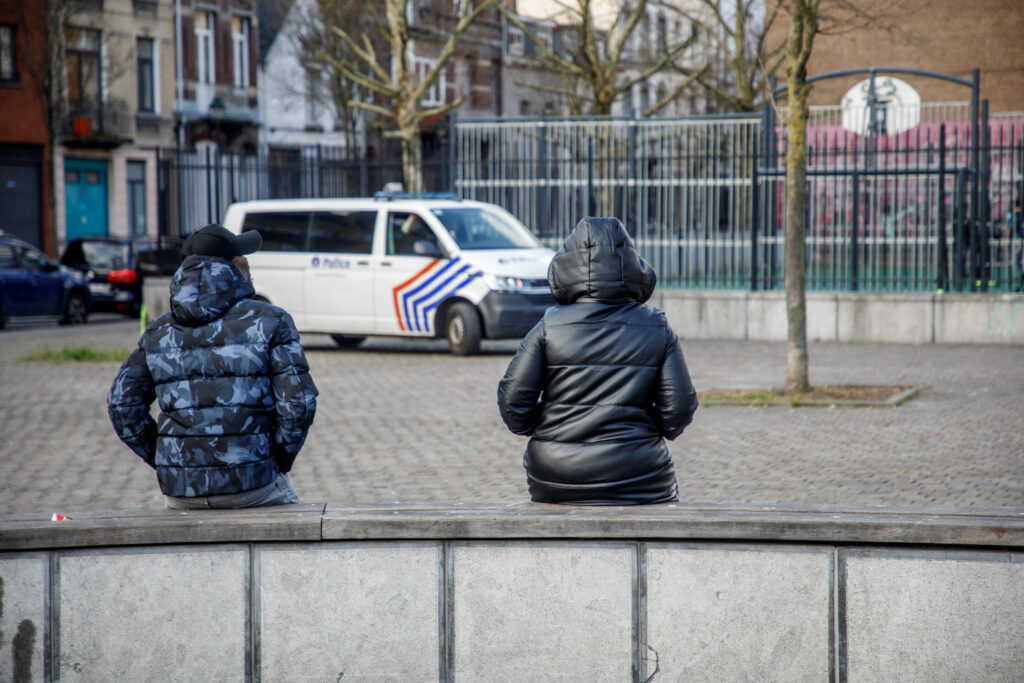Belgium is joining seven other Member States to set up a Europol taskforce to tackle "violence-as-a-service" – a new phenomenon where criminal organisations engage young people to commit acts of violence in return for payment.
Organised crime groups in Europe have been increasingly exploiting young people to commit crimes to avoid detection and prosecution, reported the European law enforcement agency Europol on Tuesday. Now, Belgium, as well as Sweden, Denmark, Finland, France, Germany, the Netherlands, and Norway, will work together to try and put an end to it.
"Violence-as-a-service refers to the outsourcing of violent acts to criminal service providers – often involving the use of young perpetrators to carry out threats, assaults, or killings for a fee," Europol stated.
Investigations show that these acts are often orchestrated remotely, with young people recruited and instructed online. "There is a clear demand from the criminal underworld for youngsters willing to carry out violent tasks – and a supply of vulnerable young people being groomed or coerced into doing so."
In Brussels, younger people are increasingly getting recruited into organised crime. In February, the gunmen with Kalashnikovs at Clemenceau metro station were visibly young and inexperienced, as shown by the CCTV footage. Additionally, one of the victims killed in that spate of shootings between rival gangs was only 19 years old.
Glamorising a luxurious, violent lifestyle
These young people are being deliberately targeted and recruited to commit a wide range of crimes – from drug trafficking and cyber-attacks to online fraud, violent extortion and even murder.
"Recruitment is often highly strategic, exploiting vulnerabilities and glamorising a luxurious, violent lifestyle," Europol said. "Social media platforms and messaging apps are used to reach young people through coded language, memes and gamified tasks: in return for money, status or a sense of belonging, they are drawn into criminal schemes that are both violent and cross national borders."
Importantly, Europol stressed that this is not random – it is calculated. By using young perpetrators, criminal networks seek to reduce their own risk and shield themselves from law enforcement.
"Recruited youth become trapped in a criminal lifestyle. Not only is it hard for them to break free, but they will often drag people in their environment into the same illicit orbit," Europol said.

Credit: Belga / Jasper Jacobs
In the new task force – dubbed OTF GRIMM – Member States will share intelligence and conduct joint investigations, identify recruitment methods and ways of making money used by networks recruiting such young people, and work with tech companies to detect and counter-recruitment through social media.
Recognising the urgency of the threat, participating police agencies will coordinate intelligence and investigations sharing; map out the roles, recruitment methods and monetisation strategies used by these networks; dismantle the criminal service providers enabling violence-on-demand; and cooperate with the tech companies to detect and prevent the recruitment on social media.
Placing Europol at the heart of this international effort provides the Member States with a platform for data analysis, operational coordination, and joint investigations – ensuring that law enforcement across Europe is aligned in tracking, investigating and disrupting Violence-as-a-Service networks.
To support national authorities and raise awareness of this growing threat, Europol has already shared how criminal networks lure young people into violence and crime. Here, they break down the recruitment ecosystem, from the use of encrypted messaging apps and social media to lifestyle messaging, manipulation tactics and gamification.
Further updates will be shared as investigations progress.
What can parents do if they are concerned?
Look out for the subtle signs, such as sudden behaviour changes and/or expensive new items with no explanation. "If your child stops asking for money but seems to have it, that’s not independence – it is a red flag."
Europol has put together an awareness guide for parents, with a list of warning signs to look out for. In addition to the ones mentioned above, these include:
- They are talking differently. New opinions, new values – sometimes suddenly.
- They are lying more. Or just avoiding questions altogether.
- They have got new friends. Especially older youth or adults you have never met.
- They have got new stuff. Clothes, tech, money – but no explanation as to where it came from.
- They are pulling away from normal life (skipping school, avoiding routines, less interest in old friends or hobbies).
- They have started using encrypted messaging apps.
"This is not about catching the kids out," Europol stressed. "It is about pulling them back, before organised crime pulls them in."

